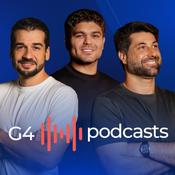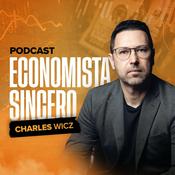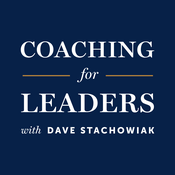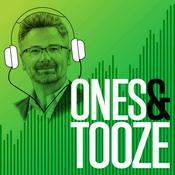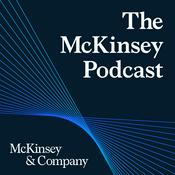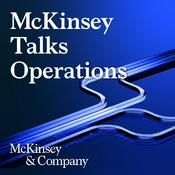291 episódios
291. ‘Having a human bank is very important’: A conversation with Citi CEO Jane Fraser
19/2/2026 | 42minJane Fraser, Chair and CEO of Citi, talks with McKinsey Senior Partner and North America Managing Partner Eric Kutcher. After becoming CEO in March 2021, Jane launched a multi-year strategy to transform, simplify, and modernize the bank for the digital age – leveraging Citi’s unique global context to reset where and how it competes. Jane speaks about what the last five years have looked like for Citi and the role AI and blockchain technologies are playing, as well as what she’s learned along the way about talent, intent, and resilience. She also shares the global trends she is seeing as one of the world’s most well-travelled CEOs.
Related Insights
‘You’ve got to be willing to “do,” as opposed to getting disrupted by somebody else’: A conversation with IBM CEO Arvind Krishna
‘Saying “I don’t know” is one of the hardest things a leader can do’: A conversation with Delta CEO Ed Bastian
Support the show: https://www.linkedin.com/showcase/mckinsey-strategy-&-corporate-finance/
See www.mckinsey.com/privacy-policy for privacy information- From its origins as an internal three-ring binder to its status as a global reference text, Valuation has shaped how business leaders think about value creation for more than 30 years.
In this episode, co-author Tim Koller joins the co-leaders of our Strategy and Corporate Finance Practice, Andy West and Dago Diedrich, to reflect on the evolution of Valuation, the principles that have remained timeless, and the lessons learned across market cycles, bubbles, and changing executive expectations. Tim also shares his perspective on long-term orientation, disciplined leadership, and the legacy he hopes the book leaves with the business community.
Related Insights
Valuation: Measuring and Managing the Value of Companies
Support the show: https://www.linkedin.com/showcase/mckinsey-strategy-&-corporate-finance/
See www.mckinsey.com/privacy-policy for privacy information 289. The CFO as growth leader: Levi’s Harmit Singh on transformation and the “Magic of the And.”
05/2/2026 | 36minLevi Strauss & Co. Chief Finance and Growth Officer, Harmit Singh, joins us to share lessons from his 13-year journey transforming the iconic clothing company. Singh explains how Levi’s returned to growth, strengthened profitability, and shifted toward a direct-to-consumer model, while staying true to its purpose-driven heritage. He introduces the “Magic of the And”–his approach to driving both top- and bottom-line performance– and discusses building a performance culture, navigating volatility and tariffs with cross-functional teams, developing finance talent, and approaching AI in finance with practical use cases and discipline. Joining Harmit for this discussion is Steve Begley, a senior partner based in our New York office.
Related Insights
The State of Fashion 2026: When the rules change
How finance teams are putting AI to work today
How Nestlé’s CFO sharpens focus across a global portfolio
Support the show: https://www.linkedin.com/showcase/mckinsey-strategy-&-corporate-finance/
See www.mckinsey.com/privacy-policy for privacy information- As organizations increasingly employ agentic AI, they face new risks that could disrupt operations, compromise sensitive data, or erode customer trust. Rich Isenberg and Charlie Lewis join us to discuss these emerging risks and how leaders can proactively ensure secure and compliant adoption.
Rich Isenberg is a partner in our Atlanta office and a leader within our Risk and Resilience and Cybersecurity Practices. Charlie Lewis is a partner in our Connecticut office and leads our cybersecurity and tech resilience work across North America and Europe. Together, they offer a frontline perspective on how organizations are implementing agentic AI, the emerging forms of cyber and operational risk, and the critical steps leaders must take to build robust governance and resilience.
Related Insights
Deploying agentic AI with safety and security: A playbook for technology leaders
The change agent: Goals, decisions, and implications for CEOs in the agentic age
Seizing the agentic AI advantage
McKinsey Risk & Resilience on LinkedIn
McKinsey Risk & Resilience: Our latest insights
Support the show: https://www.linkedin.com/showcase/mckinsey-strategy-&-corporate-finance/
See www.mckinsey.com/privacy-policy for privacy information 287. IBM Chairman, President, and CEO Arvind Krishna on setting bold ambition and driving growth through innovation
22/1/2026 | 43minArvind Krishna, the Chairman, President, and Chief Executive Officer of IBM, stepped into the CEO role at IBM in 2020, following 30 years at the company. Prior to that, he held various senior positions, spanning VP of Cloud and Cognitive Software to Head of Research, where he drove innovation in core technologies – including artificial intelligence, quantum computing, and cloud platform services. In today’s episode, Arvind joins our North America Chair and senior partner Eric Kutcher to discuss how he led IBM to triple its share price in just five years, the current AI landscape, how to pursue opportunities from volatility, the potential of quantum computing, what it takes to drive growth through innovation, and the dangers of being too risk-averse.
Related insights
CEO Excellence: The Six Mindsets That Distinguish the Best Leaders from the Rest
A CEO for All Seasons: Mastering the cycles of leadership
The Strategic CEO newsletter
Delta Air Lines CEO Ed Bastian: Lessons from the captain’s seat
Doug Parker, former chairman and CEO of American Airlines, shares leadership lessons
John Stankey talks about leaning into the long term at AT&T
Support the show: https://www.linkedin.com/showcase/mckinsey-strategy-&-corporate-finance/
See www.mckinsey.com/privacy-policy for privacy information
Mais podcasts de Negócios
Podcasts em tendência em Negócios
Sobre Inside the Strategy Room
We talk with McKinsey partners and corporate executives on the challenges they face creating lasting strategies in a fast-changing world. We also examine the different ways these executives approach these challenges and the new and innovative ways they think of creating a vision for their enterprises.
Site de podcastOuça Inside the Strategy Room, Economia e muitos outros podcasts de todo o mundo com o aplicativo o radio.net
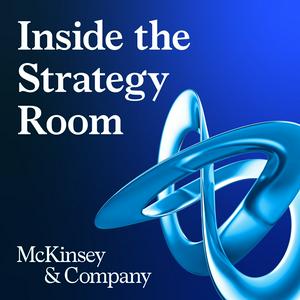
Obtenha o aplicativo gratuito radio.net
- Guardar rádios e podcasts favoritos
- Transmissão via Wi-Fi ou Bluetooth
- Carplay & Android Audo compatìvel
- E ainda mais funções
Obtenha o aplicativo gratuito radio.net
- Guardar rádios e podcasts favoritos
- Transmissão via Wi-Fi ou Bluetooth
- Carplay & Android Audo compatìvel
- E ainda mais funções


Inside the Strategy Room
Leia o código,
baixe o aplicativo,
ouça.
baixe o aplicativo,
ouça.






